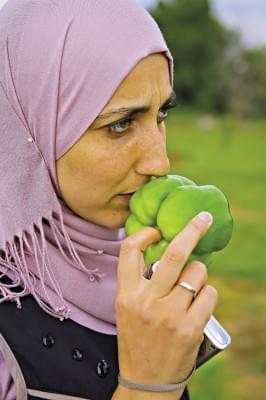Bridgeheads in North Africa: Algeria
In Algeria, a country with a population of 39 million, there is hardly any land suitable for agricultural production – no wonder that more than 80 percent food is imported. The European Union is strengthening economic cooperation with the countries in North Africa. Algeria and Morocco are trying to develop close ties with the so-called new EU member states. This creates a great opportunity for us to enter into economic partnerships in the region which is developing rapidly. These countries can constitute an export market for Hungarian products. Thanks to its natural gas and minerals, Algeria’s economy expanded by 3.1 percent in 2013 and the per capita GDP was USD 7,400. The unemployment rate is around 10 percent, the level of inflation is relatively low at 3.9 percent and the country’s debt is only 13.2 percent in a GDP ratio. As for agricultural production, fruit and vegetable production and crop farming all require irrigation. There is also sheep and goat farming in the highland region. Most of the farms are low-efficiency family enterprises – but also because of this reason a rather high proportion of the population, 14 percent is employed in agriculture. 73 percent of Algerians live in cities but the share of agriculture from the country’s GDP is rather high, about 9.4 percent; the industry’s contribution is 62.6 percent and services are at 28 percent. Algerians know that there is no life without water and one of Hungary’s initiatives can capitalise on this. Relations between Algeria and Hungary go a long way back and not only goods have been exchanged but knowledge as well. In the past many Algerian students had studied at Hungarian universities and one of them, Dr Rachid Benaissa became the country’s Minister of Agriculture. In part due to this fact agricultural cooperation between the two countries started developing rapidly and our agri-food export got seven times bigger. However, exporting Hungarian products to Algeria is only one element of the cooperation. Several joint programmes are also being implemented, for instance at the moment a feasibility study is being prepared on building a water-saving irrigation system in Algeria. Another project, which has already been realised, is the implantation of Hungarian cow embryos in Algerian cows. The two countries’ livestock breeding institutions are also working together.
Related news
Related news
Nestlé to sell remaining ice-cream assets but commits to Froneri venture
🎧 Hallgasd a cikket: Lejátszás Szünet Folytatás Leállítás Nyelv: Auto…
Read more >Lidl guarantees fairer prices for cocoa farmers
🎧 Hallgasd a cikket: Lejátszás Szünet Folytatás Leállítás Nyelv: Auto…
Read more >







